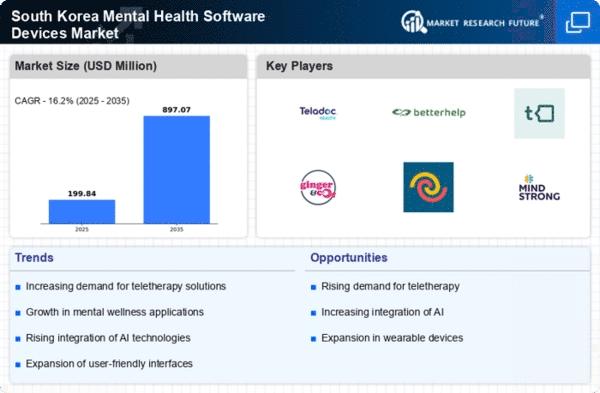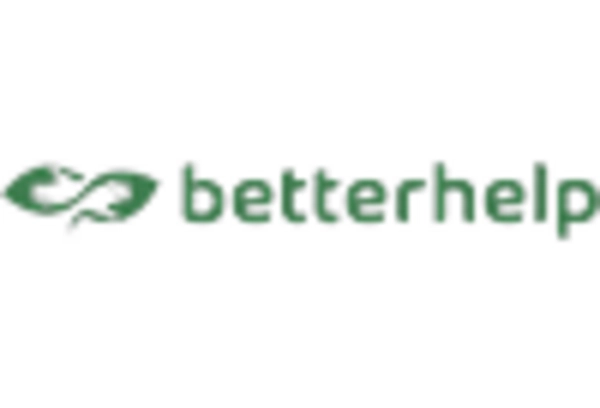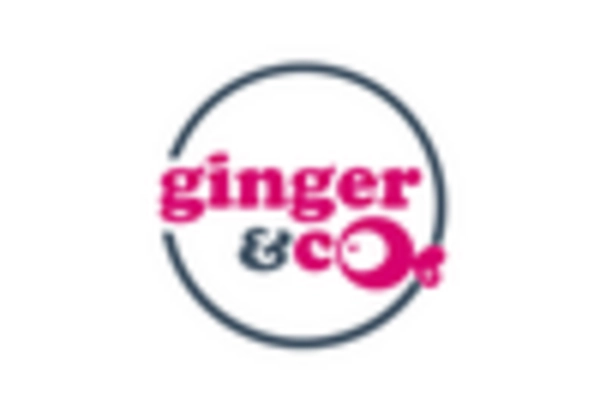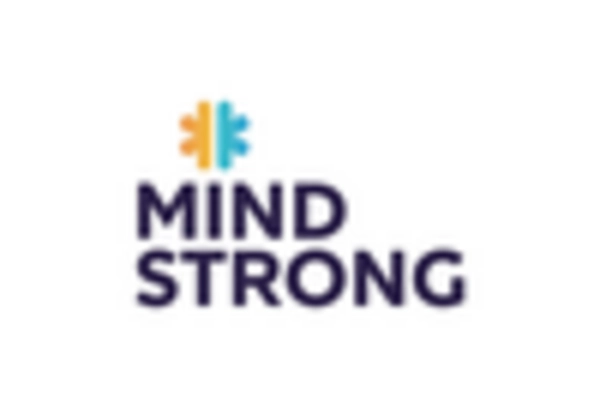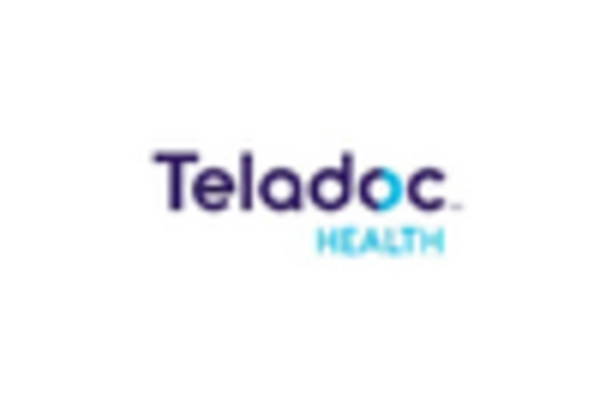Rising Mental Health Awareness
The increasing awareness surrounding mental health issues in South Korea is a pivotal driver for the mental health-software-devices market. As societal stigma diminishes, more individuals are seeking help, leading to a surge in demand for mental health solutions. Recent surveys indicate that approximately 30% of South Koreans have reported experiencing mental health challenges, prompting a greater need for accessible resources. This heightened awareness encourages the development and adoption of software and devices tailored to mental health, fostering innovation in the industry. Furthermore, educational campaigns by government and non-profit organizations are likely to enhance public understanding, thereby expanding the user base for mental health applications and devices. As a result, the mental health-software-devices market is poised for significant growth, driven by a more informed and proactive population.
Government Initiatives and Funding
Government initiatives and funding are instrumental in propelling the mental health-software-devices market. In South Korea, the government has recognized the importance of mental health and is actively investing in programs aimed at improving mental health services. Recent budgets have allocated substantial resources for the development of digital mental health solutions, which are expected to enhance accessibility and affordability. For example, the government has launched initiatives to subsidize mental health applications, making them more affordable for the general population. This financial support is likely to stimulate innovation within the industry, encouraging startups and established companies to develop new software and devices. As a result, the mental health-software-devices market is anticipated to benefit from increased investment and support, leading to a broader range of options for consumers.
Growing Demand for Personalized Solutions
The growing demand for personalized mental health solutions is a significant driver for the mental health-software-devices market. Consumers are increasingly seeking tailored approaches to mental health care that address their unique needs and preferences. This trend is evident in the rising popularity of applications that offer customized therapy plans, mood tracking, and self-help resources. In South Korea, approximately 40% of users express a preference for personalized mental health solutions, indicating a shift towards individualized care. Companies in the mental health-software-devices market are responding by developing platforms that utilize user data to create bespoke experiences. This focus on personalization not only enhances user satisfaction but also improves treatment outcomes, thereby driving market growth. As the demand for customized solutions continues to rise, the mental health-software-devices market is likely to expand significantly.
Technological Advancements in Health Tech
Technological advancements play a crucial role in shaping the mental health-software-devices market. Innovations in mobile applications, wearable devices, and telehealth platforms are transforming how mental health services are delivered. In South Korea, the integration of advanced technologies such as artificial intelligence and data analytics is enhancing the effectiveness of mental health solutions. For instance, AI-driven chatbots and virtual therapists are becoming increasingly popular, providing users with immediate support and resources. The market is projected to grow at a CAGR of around 15% over the next five years, reflecting the increasing reliance on technology for mental health management. These advancements not only improve user engagement but also facilitate personalized treatment plans, making mental health care more accessible and efficient. Consequently, the mental health-software-devices market is likely to expand as technology continues to evolve.
Increased Focus on Workplace Mental Health
The increased focus on workplace mental health is emerging as a vital driver for the mental health-software-devices market. In South Korea, organizations are recognizing the impact of mental health on employee productivity and overall well-being. As a result, many companies are implementing mental health programs and investing in software solutions that support their employees' mental health needs. Recent studies suggest that businesses that prioritize mental health see a 20% increase in employee satisfaction and retention rates. This trend is prompting the development of workplace mental health applications that offer resources such as stress management tools, counseling services, and wellness programs. Consequently, the mental health-software-devices market is likely to experience growth as more organizations seek to enhance their mental health offerings and create supportive work environments.


